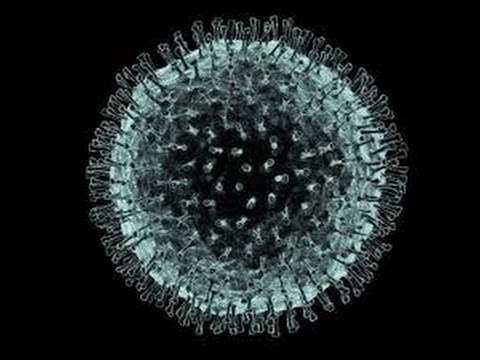2019 Novel (2019-nCoV) is a virus (more specifically, a coronavirus) identified as the cause of an outbreak of respiratory illness first detected in Wuhan, China1. Early on, many of the patients in the outbreak in Wuhan, China reportedly had some link to a large seafood and animal market, suggesting animal-to-person spread. However, a growing number of patients reportedly have not had exposure to animal markets, suggesting person-to-person spread is occurring. At this time, it’s unclear how easily or sustainably this virus is spreading between people. The latest situation summary updates are available on CDC’s web page 2019 Novel Coronavirus, Wuhan, China. This post ” Coronavirus outbreak in China Info from CDC” seeks to provide helpful information about this condition.
Quick Update (1/26/2020)
A fourth case of the deadly coronavirus that originated in central China was confirmed in the United States, health officials announced Sunday. For more info, click on the link below.
https://abc13.com/health/4th-case-of-new-coronavirus-confirmed-in-us/5879796/
How it Spreads
Coronaviruses are a large family of viruses that are common in many different species of animals, including camels, cattle, cats, and bats. Rarely, animal coronaviruses can infect people and then spread between people such as with MERS and SARS. Many of the patients in the pneumonia outbreak caused by 2019-nCov in Wuhan, China had some link to a large seafood and live animal market, suggesting animal-to-person spread. However, a growing number of patients reportedly have not had exposure to animal markets, indicating person-to-person spread is occurring.
When person-to-person spread has occurred with MERS and SARS, it is thought to have happened via respiratory droplets produced when an infected person coughs or sneezes, similar to how influenza and other respiratory pathogens spread. The spread of SARS and MERS between people has generally occurred between close contacts.
It’s important to note that how easily a virus spreads person-to-person can vary. Some viruses are highly contagious (like measles), while other viruses are less so. It’s not clear yet how easily 2019-nCoV spreads from person-to-person. It’s important to know this to better understand the risk associated with this virus.
There is much more to learn about the transmissibility, severity, and other features associated with 2019-nCoV and investigations are ongoing. The latest situation summary updates are available on CDC’s web page 2019 Novel Coronavirus, Wuhan, China.
Symptoms2
Patients with a confirmed 2019-nCoV infection have reportedly had mild to severe respiratory illness with symptoms of:
- fever
- cough
- shortness of breath
CDC believes at this time that symptoms of 2019-nCoV may appear in as few as 2 days or as long as 14 after exposure. This is based on what has been seen previously as the incubation period of MERS viruses.
Travel Health Notices3
Be aware of current health issues in China. Learn how to protect yourself.
Warning Level 3, Avoid Nonessential Travel
- Updated Novel Coronavirus in Hubei Province, ChinaJanuary 24, 2020CDC recommends that travelers avoid all nonessential travel to Hubei Province, China, including Wuhan.
Watch Level 1, Practice Usual Precautions

- Updated Novel Coronavirus in ChinaJanuary 24, 2020There is an ongoing outbreak of respiratory illness first identified in Wuhan, China, caused by a novel (new) coronavirus.
- Global Measles Outbreak NoticeJanuary 03, 2020Measles is in many countries and outbreaks of the disease are occurring around the world. Before you travel internationally, regardless of where you are going, make sure you are protected fully against measles.
Vaccines and Medicines
Check the vaccines and medicines list and visit your doctor at least a month before your trip to get vaccines or medicines you may need.
| Find Out Why | Protect Yourself | |
|---|---|---|
All travelersYou should be up to date on routine vaccinations while traveling to any destination. Some vaccines may also be required for travel. |
||
| Measles |
|
|
| Routine vaccines | Make sure you are up-to-date on routine vaccines before every trip. These vaccines include the measles-mumps-rubella (MMR) vaccine, diphtheria-tetanus-pertussis vaccine, varicella (chickenpox) vaccine, polio vaccine, and your yearly flu shot. | |

Most travelersGet travel vaccines and medicines because there is a risk of these diseases in the country you are visiting. |
||
| Hepatitis A | CDC recommends this vaccine because you can get hepatitis A through contaminated food or water in China, regardless of where you are eating or staying. | |
| Typhoid | You can get typhoid through contaminated food or water in China. CDC recommends this vaccine for most travelers, especially if you are staying with friends or relatives, visiting smaller cities or rural areas, or if you are an adventurous eater. | |
Some travelersAsk your doctor what vaccines and medicines you need based on where you are going, how long you are staying, what you will be doing, and if you are traveling from a country other than the US. |
||
| Hepatitis B | You can get hepatitis B through sexual contact, contaminated needles, and blood products, so CDC recommends this vaccine if you might have sex with a new partner, get a tattoo or piercing, or have any medical procedures. | |
| Japanese Encephalitis | You may need this vaccine if your trip will last more than a month, depending on where you are going in China and what time of year you are traveling. You should also consider this vaccine if you plan to visit rural areas in China or will be spending a lot of time outdoors, even for trips shorter than a month. Your doctor can help you decide if this vaccine is right for you based on your travel plans. See more in-depth information on Japanese encephalitis in China. | |
| Polio | 
You may need a polio vaccine before your trip to China if you are visiting the Xinjiang province, especially if you are working in a health care facility, refugee camp, or humanitarian aid setting. This kind of work might put you in contact with someone with polio.
|
|
| Rabies | Rabies can be found in dogs, bats, and other mammals in China, so CDC recommends this vaccine for the following groups:
|
|
| Yellow Fever | Required if traveling from a country with risk of YF virus transmission and ≥9 months of age, including transit in an airport located in a country with risk of YF virus transmission.1 This requirement does not apply to travelers whose itineraries are limited to the Hong Kong Special Administrative Region (SAR) and Macao SAR.
Note: Yellow fever vaccine availability in the United States is currently limited. If you need to be vaccinated before your trip, you may need to travel some distance and schedule your appointment well in advance. Find the clinic nearest you. |
|
| Malaria | 
When traveling in China, you should avoid mosquito bites to prevent malaria. You may need to take prescription medicine before, during, and after your trip to prevent malaria, depending on your travel plans, such as where you are going, when you are traveling, and if you are spending a lot of time outdoors or sleeping outside. Talk to your doctor about how you can prevent malaria while traveling. Areas of China with a risk of malaria: Rare cases in the counties along the China-Burma (Myanmar) border in Yunnan Province and Motuo County in Tibet. No malaria in areas where most major river cruises pass. See more detailed information about malaria in China. |
|
Bibliography




